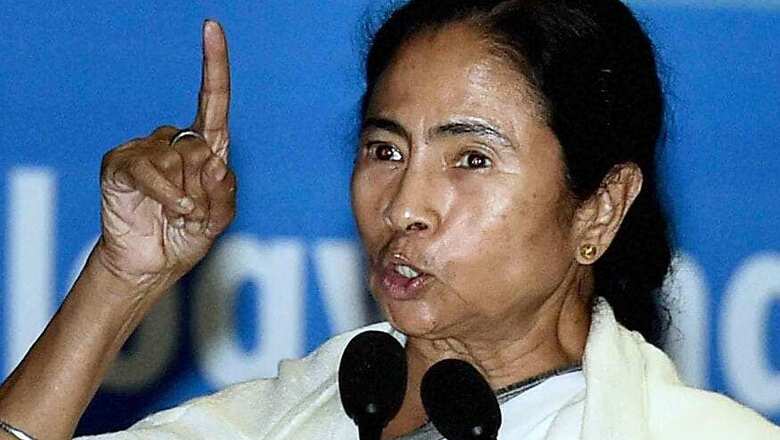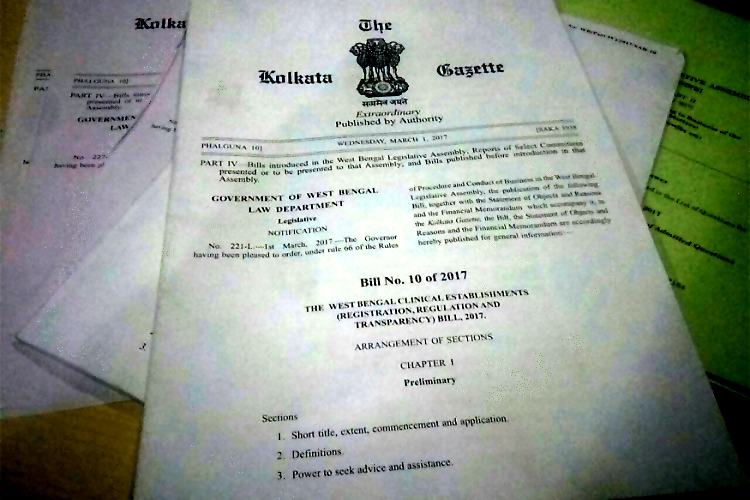
views
Kolkata: Tightening the noose around the private healthcare sector of the state, the West Bengal state Assembly passed The West Bengal Clinical Establishments (Registration, Regulation and Transparency) Bill, 2017, amid CM Mamata Banerjee’s claim that when enacted the law would “serve as a model for the rest of the country”.
The Opposition, however, charged Banerjee with “plagiarising” the existing West Bengal Clinical Establishments (Registration and Regulation) Act, 2010, which the Bill sought to repeal, and alleged that the chief minister was “simply playing to the gallery”.
“This is simply old wine in new bottle. Most of the content in the Bill already existed. The words are exactly the same. If the chief minister was serious about the ailments that plague private healthcare, she should have implemented the existing law and strengthened it by making amendments,” said Sujan Chakraborty, CPI-M leader, whose proposed amendments to the Bill were ignored by the ruling Trinamool Congress.
However, while defending the Bill on the Assembly floor, Trinamool leader Mahua Maitra argued: “The 2010 Act only laid stress on the documentation of establishments. This Bill focuses on their transparency. That’s the primary difference.”
“The clinical establishment regulatory commission, missing in the earlier Act, but proposes to set up in the current bill, will have enough powers to reign in offenders. Binding all the mandatory obligations which this Bill enforces on private hospitals, along with the licensing clause of these establishments, make way for its fundamental difference with the ineffective law that existed,” she asserted.
“The Government is deeply concerned about the lack of transparency in the functioning of clinical establishments in general and private hospitals or nursing homes in particular, resulting in unnecessary and avoidable harassment and exploitation of patients (service recipients). It is logical that clinical establishments would levy fees and charges for the services they provide. But such charges should be reasonable with the objective of covering the cost of provision of services besides generating a decent surplus. The government is of the view that healthcare service is not a commercial proposition; it is a service or ‘seva’, which should be delivered to service recipients with humility and human touch. Life is precious and there can be no monetary value attached to human health,” read the “Statement of Object and Reasons” of the Bill.

Here are the salient features of the Bill:
Setting up a high-powered Clinical Establishment Regulatory Commission which would monitor, regulate, and supervise the functions of private healthcare facilities in the state. It would also enforce transparency at these establishments.
The Commission would be empowered to fix rates and charges for treatments at both outdoor and indoor patient departments, including diagnostics.
The commission would also award compensation to victims of negligent treatment at the private facilities not exceeding Rs 50 lakh.
In the eventuality of negligent treatment, the hospitals would be liable to compensate victims with up to Rs 3 lakhs for simple injury, up to Rs 5 lakhs for grievous injury and not less than Rs 10 lakhs in case of death.
Civil courts would have no jurisdiction over action taken by the Commission and aggrieved parties can only seek redress at High Courts or the Supreme Court of this country.
The hospitals will be bound to treat victims of road accidents, persons suffering from sudden calamities, acid attacks and rape victims irrespective of their ability to bear treatment costs. Hospitals would also be bound to release dead bodies of patients in the eventuality of relatives’ inability to pay full treatment costs.
The establishments will have to strictly follow fixed rates and charges for treatment, including package rates, and would have to provide proper estimates for treatment costs not covered in fixed rates. The final bill cannot exceed estimates by a certain percentage that would be settled by the government.
The hospitals would have to strictly discourage repetitive lab tests on patients, unless essential and must mandatorily obtain consent of patient party for continuation of ventilation support to a patient after brain death.
The recent spate of incidents involving alleged malpractices and treatment negligence in private healthcare facilities of Bengal, including those at some of the top-end private hospitals of Kolkata prompted Banerjee, who also doubles up as the state health minister, to call for a meeting of representatives of private hospitals on 22 February. The meeting was widely televised and Banerjee rebuked the management representatives on grounds of inflated bills, non-transparency, treatment negligence and inhuman behaviour with patients.
The current Bill, Banerjee said, was a step forward in the direction to ensure transparency and accountability of the private healthcare sector which had so far remained largely out of government scanners. She has, doubtless, enjoyed wide popular support in the process. But there are apprehensions, albeit mellowed down for the time being, as to whether the move would hamper investments in the sector.
Questions have also been raised on whether the similar monitoring should also be extended to public healthcare facilities in the state which allegedly suffer from most of the above ailments. Banerjee has, however, rubbished the possibility.
“Our public healthcare system has its own checks and balances in place which are thorough”, she said on the floor of the Assembly on Friday.
Banerjee has, however, announced her intention to extend her monitoring over the private education sector and vehicular traffic laws of West Bengal.




















Comments
0 comment